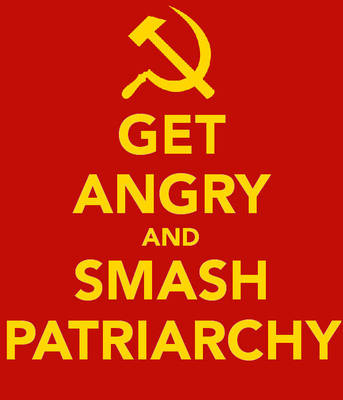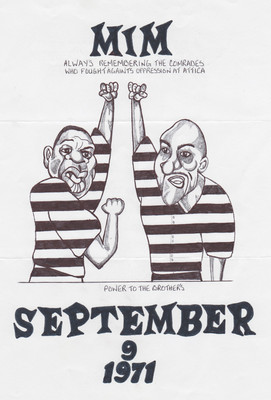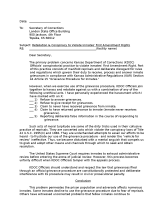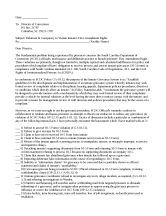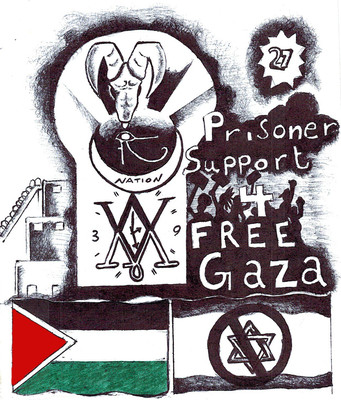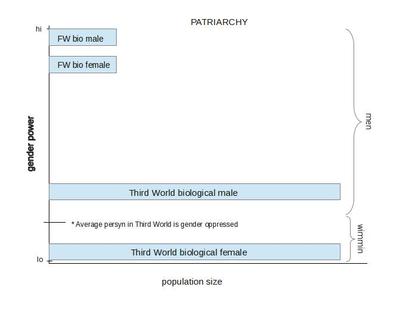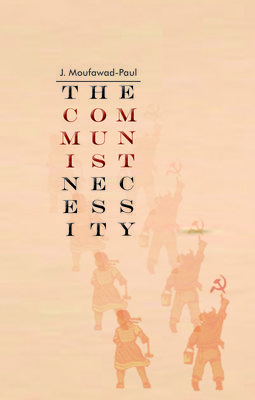
"Party People" Problems
Party People
Written by Mildred Ruiz-Sapp, Steven Sapp, and William Ruiz a.k.a. Ninja
Directed and Developed by Liesl Tommy
Berkeley Repertory Theater
24 October 2014 - 16 November 2014, extended to 30 November 2014
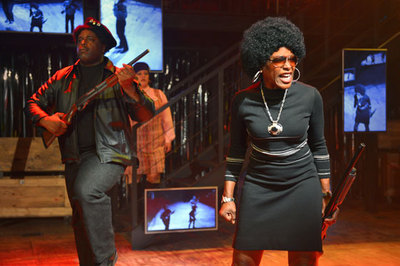
“Party People” is a play about the Black Panther Party and Young Lords Party showing this month in Berkeley, California. The play was extended two weeks and has been a destination for many school field trips. Well-patroned, and intellectually accessible via the entertainment medium, “Party People” might well be the number one cultural piece shaping the understanding of the Black Panther Party (BPP) and Young Lords Party (YLP) in the Bay Area today. This is a major problem.
The premise of the play revolves around two young men planning and then actualizing a gallery event to commemorate the legacy of the Black Panther Party and Young Lords Party. Malik (a Panther cub whose father is locked up) and Jimmy (whose uncle was a Young Lord) invite several former party members to their gallery opening, and thus it doubles as a reunion of the rank and file. The play takes you through the day-of preparations for the event, which the party members help with, and through the event itself, which is attended by party members, an FBI informant, and the wife of a dead cop. Dialogue centers around the inter-persynal conflicts between party members and between generations, with conservatively half of the 2 hours and 35 minutes spent yelling and in-fighting between party members, and with their offspring.
The main downfall of revolutionary struggles of the 1960s was a lack of deep political education. Whether at the level of the masses, rank and file, or party leaders, a lack of political education allows political movements to be co-opted, infiltrated, and run into the ground by enemy line. In its heyday, the BPP grew so rapidly that much of the new membership did not have a deep understanding of why they did what they did. The play itself doesn’t say that political consciousness needs to be raised, but it is a strong testament to that need. Unfortunately, neither does it contribute to that political education, which is likely due to the exact thing i am criticizing. “Party People” would have you believe the main legacies of the BPP and YLP were in creating exciting memories, and setting models for government programs. In “explaining” the origin of the BPP, the cast breaks into song: all it took to get it off the ground was shotguns, grits, and gravy.
Omar X is one of the more intriguing characters in the play. He operates more on intellect than emotions, and has an air of self-discipline and militancy. Omar enters the play as a self-appointed protector of the Black Panther legacy. He approaches Malik and Jimmy prior to the gallery opening, very skeptical of what they are going to say and how they might twist the history. Finally giving his approval to the art project, Omar by proxy grants legitimacy to the play itself. In real life, former Black Panthers Bobby Seale and Ericka Huggins also both gave their seal of approval.(1) The People’s Minister of Information JR Valrey, an outspoken member of today’s generation of Black media who promotes the Panthers as an example to be followed, was more critical.(2)
The open brutality of pigs on party members is only given cursory examination, primarily through dialogue. Yet there is a graphic scene where Omar is tortured by several fellow Panthers, led by an FBI infiltrator. Recollecting this event in the gallery, 50 years later, Omar’s comrades are still telling him “You were so outspoken and critical! Why didn’t you just follow orders! We just did what we were told!” with remorse. It is apalling that in 50 years of reflection, these characters haven’t figured out that dissent and criticism should be encouraged in the party, and that the real error here was that they themselves were “just” following orders. Again, the problem goes back to political development, whereas the play would have you believe that this brutality was just an unavoidable outcome of this type of organizing work.
Learning directly from the downfall of the Black Panther Party and COINTELPRO operations, rather than quash dissent, we would encourage political organizations to practice democratic centralism. Resolving contradictions through debate is the only way we can grow as political organizations. But instead of airing our dirty laundry for every infiltrator or wannabe cop to take advantage, as was common in the 60s, we take a democratic vote within the organization and then uphold the party line in public, while continuing to debate behind closed doors as needed.
Democratic centralism is also closely related to the mass line. Developing mass line happens when the party refines and promotes the best ideas from the masses, making the party their voice. The masses would include people who are workers in the party-led programs, but who have not yet reached a level of understanding and participation to join the party. One of the contradictions within the Panthers was that they had new people become party members, but then excluded them from the decision-making process. There was not a transparent decision-making process with a defined group of people. This led the rank and file to believe they should just do what Huey or Eldridge said, as was depicted in the play.
Security practices are again thrown out the window in Omar’s criticism of Malik and Jimmy’s stage names (MK Ultra and Primo, respectively). Omar says they should put their real names on their project, because aren’t they proud of their work? Don’t they want to be accountable to what potential lies they are about to disseminate? Is this just a game to them? Are they “really” revolutionaries if they are “hiding” behind their stage names? On the other hand, we strongly encourage revolutionaries inside the belly of the beast to protect their identities from the state. We forgive the BPP for making this error at the time, but Omar should have figured it out by now.
Enthusiasm is given to the question of gender and blaming of wimmin for the downfall of the parties. The dialogue states that all the men were on drugs or locked up or dead, so of course wimmin had to lead. But then when the parties dissintegrated, the wimmin were blamed. “Pussy killed the party!” is a sexually-choreographed song performed by the female cast, criticizing the machisimo and male chauvinism in both the BPP and YLP. But little if any mention is given to the female-focused programs of the Young Lords to curb forced sterilization and provide access to abortion for Boriqua wimmin. Selectively applying hindsight, “Party People” disregards the fact that these revolutionary organizations were the vanguard of proletarian feminist organizing in their day.(3)
At the gallery during the reunion, a white womyn demands attention for an emphatic monologue about her husband, a cop who was killed in a shootout with the Panthers. Subjectively i found this monologue to be too damn long and the response to be too damn weak. For the hundreds of times the word “fuck” is thrown around in this play, i half expected the Panther’s response to this accusation that he had killed the cop to be “fuck your pig husband.” Instead he calmly explains that he did not kill the cop and that he was imprisoned 25 years for a murder he did not commit, washing his persynal hands of the “crime.” He then goes and sits down and everyone takes a pause to feel sad. This was a perfect opportunity to educate the audience on casualties of war and group political action. Instead the playwright chose to build empathy for our oppressors.
One of the most glaringly offensive themes in this play is the integrationist line slipped in subtly throughout, and hammered home thoroughly in the final blast of energy. A source of pride for the former party members is that their programs still live on today. No mention is made of the state co-opting these programs, such as free breakfast at school, in an effort to make the party seem obsolete. Feeding kids before school is of almost no cost to Amerikkka, and it’s worth it if it convolutes the need for revolutionary independence. While focusing a lot on the free breakfast program, not once is it mentioned that these kids were also receiving a political education while they ate. Lack of political education is cause and consequence of these errors of the play.
The question comes up of what today’s [petty-bourgeois] youth should do to push the struggle forward. What role do they have to play? What direction should they take? If I were a high school student watching this play, asking myself the same questions, i would not have left the theater with any better answers than i came in with, and i don’t know that i would have gone forward looking to the Panthers or Young Lords for direction. Sadly, these organizations did give us direction, but in “Party People” it is altogether discarded.
On the topic of youth, there are three characters who are representative of the offspring of the parties: Malik, Jimmy, and Clara. Malik spends a lot of time trying to dress and speak like a Panther, but not a lot of time with his nose in books. Clara’s parents are both dead, and although her tia tries to explain the importance of her parents’ political devotion, Clara resents the YLP for stealing them from her. Clara wants to go to college and get a good job so she can “join the 1%.” This “discussion” of the “1%” is the closest the play gets to an examination of class, unlike the BPP and YLP who had thorough, international class analyses.(4)
With all the examination of the contradictions between the different generations, and the time (yet not necessarily depth) given to Fred Hampton’s murder by the pigs, Fred Hampton, Jr. is not mentioned one time in the play. Nowhere do they talk about the revolutionary organizing of Chairman Fred, Jr. in Chicago, Illinois with the Prisoners of Conscience Committee. You might not even leave the play knowing that Fred Hampton had a child. Considering the youth are looking for direction, and have all these feelings about their parents and relatives abandoning them for the revolution, why wasn’t Fred, Jr. given a primary role in this play? Upholding his political work as an example might have put a lot of anxieties to rest.
Social-media-as-activism is correctly and thoroughly criticized (one of the few positive elements). Instead, a resolution to the youth’s dysphoria and lack of direction is offered in a final rap by Primo, which highlights conditions of the oppressed nations inside United $tates borders. But he ephasizes that “I am Amerikan! We are all Amerikan!” over and over and over again, really sucking the audience in on this one. The closing message of the play was decidedly not, “I am Boriqua! You are New Afrikan! Amerikans, commit nation suicide! And let’s destroy Amerikkkan imperialism for the benefit of all the world’s oppressed peoples!!”
Modern lumpen organizations are mentioned briefly as part of the fallout of the parties. In its lack of direction, “Party People” does not uphold these organizations as holding potential for revolutionary change. Again another great educational opportunity missed. As a supplement, i would recommend the documentary Bastards of the Party (2005). This film details the development of the Bloods and Crips, from self-defense groups, through the Slausons, into the Panthers, and to today. In this film, the Watts Truce in Los Angeles in 1992 is focused on, and serves as an excellent model of the positive impact lumpen organizations can have on reducing in-fighting in oppressed nation communities and building power independent from the oppressor government.
It is evident from “Party People” that the petty bourgeoisie doesn’t have much of a role to play in our current revolutionary organizing. Until they give up their attachments to the material spoils of imperialism, they will keep producing confused representations of proletarian struggle. I would advise today’s youth, especially those who feel disheartened by this play, to read up on the real history of BPP and Young Lords,(5) and contact us to get involved in political organizing work to end oppression for all the world’s people!
Related Articles:This article referenced in:








